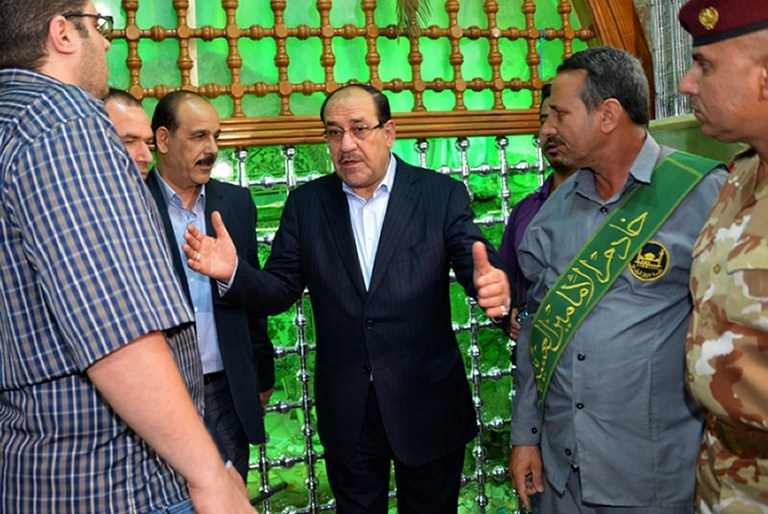Iraqi Kurdish PM, former Iraqi PM call on Maliki to step down

The prime minister of the Kurdish Regional Government in Iraq's north on Sunday called for Iraqi Prime Minister Nouri al-Maliki to resign for the sake of Iraq's well-being in the future.
"Al-Maliki should resign because problems will continue to build up across the country as long as he serves as the prime minister," said Nechirvan Barzani on a program aired on American NBC channel on Sunday.
Barzani's comments were echoed by former Iraqi Prime Minister Iyad Allawi, current leader of the Iraqi National Accord party, who also called on Maliki to step down.
"We demand the formation of a national unity government so that we can protect our country from other possible dangers," he told a press conference on Sunday.
Maliki has been facing wordwide criticism as the armed insurgents led by the militant group Islamic State of Iraq and the Levant (ISIL) has expanded its reach since 10 June when it seized Iraq's second-largest city Mosul.
On Saturday, the militants took the border town of Al Qaim near Syria effectively clearing the way for fighters and weapons to move more easily between the two countries.
Then on Sunday, the Iraqi army retreated from three towns - Rawah, Anah and Rutba - in the western province of Anbar, ceding them to ISIL fighters.
At a press conference on Sunday, Maliki's top military spokesman, General Qassim Atta, said the army's retreat was a tactical procedure to reinforce troops in other areas.
In the months leading up to ISIL's offensive, the country had seen a marked increase in sectarian violence between Sunni and Shi’a Muslims.
"We warned the central government against ISIL attacks six months ago and urged Maliki to take measures, especially for Mosul, but he dismissed our suggestions," Barzani said.
He warned that the country would fall into chaos if political leaders could not find political solutions to the crisis.
Tensions between Kurdistan and the central government in Iraq have been rising since 2012 when KRG officials started to make the claim - one which has continued until now - that the region's share of the national budget was being reduced.
Pressure increased further in May when Erbil, after building an independent pipeline with Turkey last December, started exporting oil to the Turkish port of Ceyhan. Baghdad took legal action in response, with the Iraqi Ministry of Oil filing for arbitration against Turkey and the state-owned pipeline operator.
Now, after leasing two tankers, the Kurds are apparently selling oil to Israel following failed attempts to sell to Morocco and other countries who insisted on mainting solidarity with Iraq, Haaretz reported on Sunday.
New MEE newsletter: Jerusalem Dispatch
Sign up to get the latest insights and analysis on Israel-Palestine, alongside Turkey Unpacked and other MEE newsletters
Middle East Eye delivers independent and unrivalled coverage and analysis of the Middle East, North Africa and beyond. To learn more about republishing this content and the associated fees, please fill out this form. More about MEE can be found here.

